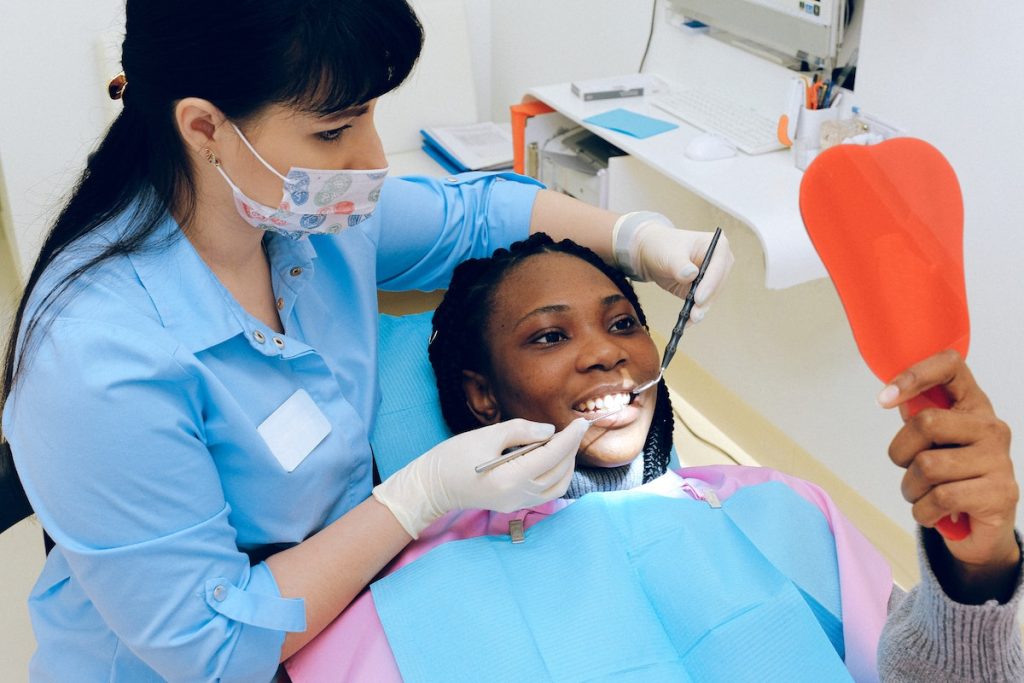Maintaining oral hygiene is one of the most important things you can do for your health. Not only does it help keep your teeth and gums healthy, but it also helps protect you from a variety of diseases. This blog will discuss the best oral hygiene practices and give instructions on how to establish a good routine.
Brush Your Teeth at Least Twice a Day
Brushing your teeth is an essential part of maintaining good oral hygiene. Brush your teeth at least twice daily, and more frequently if you can.. Be sure to use a soft-bristled toothbrush and toothpaste with fluoride. Gently brush all surfaces of your teeth, using circular, back-and-forth, and up-and-down motions. Finish by brushing your tongue (or use a tongue scraper).
You should also floss your teeth every day. Flossing helps remove plaque and food particles between your teeth, which your toothbrush can’t reach. To floss, wind a piece of floss around your middle fingers, leaving about an inch (2.5 cm) of floss between them. Gently insert the floss between your teeth, using a back-and-forth motion. Curl the floss around each tooth in a “C” shape and slide it up and down against the side of the tooth. Be sure to floss under the gumline as well.
Rinse Your Mouth with Water or Mouthwash
Rinsing your mouth with water or mouthwash is also important for oral hygiene. Water helps remove food particles and plaque from your teeth, while mouthwash can help kill bacteria and freshen your breath. Rinse your mouth with water after every meal, and use mouthwash at least once a day.
Talk to your dentist or dental hygienist to find a mouthwash that’s right for you. Some mouthwashes are designed to treat specific conditions, such as gingivitis or bad breath. Here are a few things to keep in mind when choosing a mouthwash:
- Alcohol-free mouthwashes are less drying and irritating.
- Children and pregnant women should avoid mouthwashes with alcohol.
- Some mouthwashes contain fluoride, which can help prevent tooth decay.
Get Regular Oral Health Screenings
In addition to practicing good oral hygiene at home, you should also regularly see your dentist or dental hygienist for professional teeth cleanings and oral health screenings. These screenings can help identify problems early when they’re easier to treat. For most people, this means going to the dentist every six months.
Depending on your oral health, you may need additional dental procedures; for example, you may need teeth replacement if you have lost teeth due to periodontitis or tooth decay. So, it’s important to see your dentist regularly, so he or she can monitor your oral health and make recommendations for treatment, if necessary.

Make Sure You’re Eating a Healthy Diet
What you eat and drink affects your oral health. A diet high in sugar can contribute to tooth decay, while a diet high in acidic foods can erode tooth enamel. To help keep your teeth and gums healthy, make sure you’re eating a balanced diet that includes plenty of fresh fruits, vegetables, and whole grains.
You should also limit your intake of sugary and acidic foods and drinks. If you do have sugary or acidic foods, be sure to brush your teeth soon after eating them. You can also help protect your teeth by drinking water instead of sugary drinks. Drink plenty of water throughout the day to keep your mouth hydrated.
Avoid Using Tobacco Products
Smoking and other tobacco use are bad for your oral health. Tobacco products can cause a variety of problems, including gum disease, tooth decay, and mouth cancer. If you smoke or use tobacco products, quitting is the best thing you can do for your oral hygiene. Here are some tips to help you quit:
- Set a quit date and tell your friends and family about your decision.
- Remove tobacco products from your home and office.
- Avoid places where people smoke.
- Find healthy ways to cope with stress, such as exercise, relaxation techniques, or yoga.
- Talk to your doctor about medications that can help you quit, such as nicotine replacement therapy or prescription drugs.
Bonus Tip: Wear a Mouth Guard if You Play Sports
If you play contact sports, wearing a mouth guard is important to protect your teeth. A mouth guard can help prevent dental injuries like cracked teeth or a broken jaw. You can buy mouth guards at most sporting goods stores. You can also have one custom-made by your dentist.
Practicing good oral hygiene is important for your overall health. Following these tips can help keep your teeth and gums healthy. Just remember to be patient – developing a good oral hygiene routine takes time and practice.

